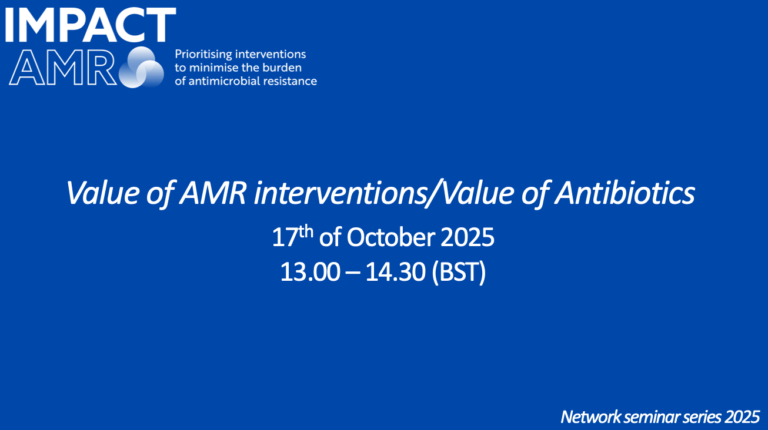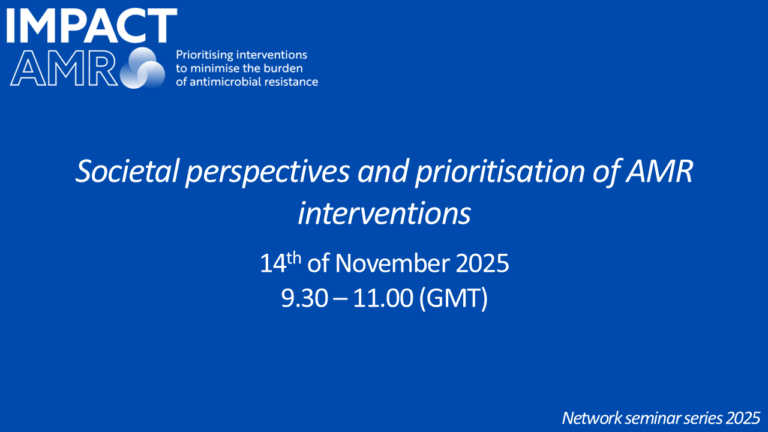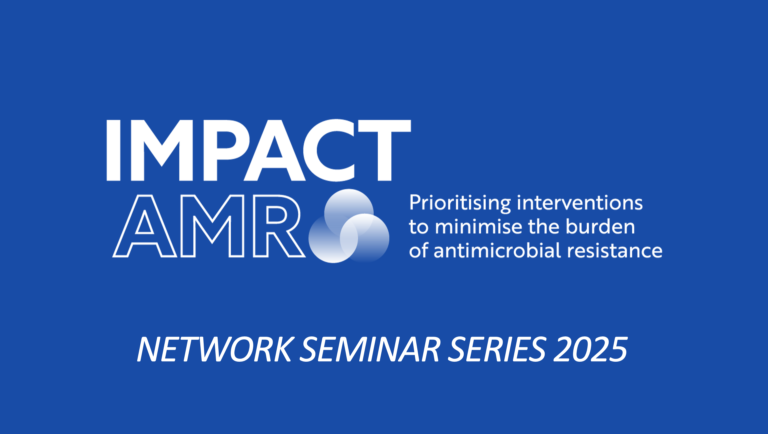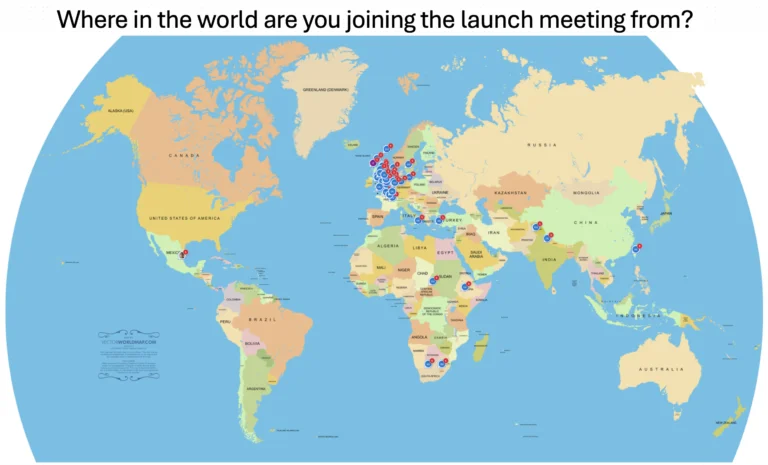Network Seminar Series – September 2025
AMR Interventions: Prioritisation Approaches
The IMPACT AMR Network take a transdisciplinary approach to improving the use of evidence to inform prioritization of efforts to impact antimicrobial resistance. In Autumn 2025, we will be running a series of thematic seminars, inviting two to three speakers at each event to present their work and to engage with participants to discuss findings, approaches and ways forward.
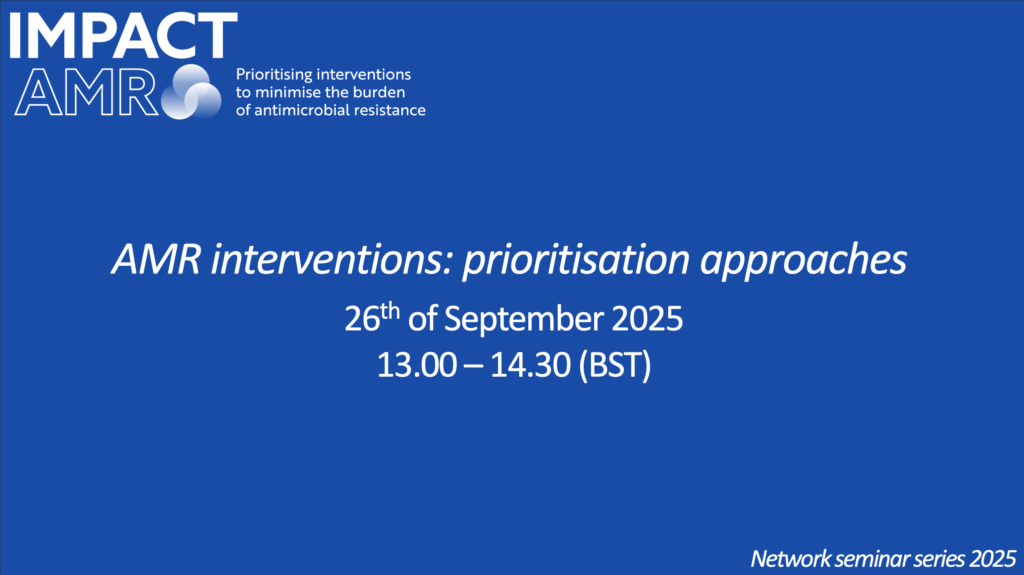
The first seminar of the series, ‘AMR Interventions: Prioritisation Approaches’ will take place on the 26th of September, from 13.00 to 14.30 (BST), via Zoom, focusing on work done by experts from the Organisation for Economic Co-operation and Development, and the World Bank.
The audience will learn about:
- The economic analysis to better understand the costs of AMR and the associated benefits of the AMR response across different sectors.
- One Health ‘best buys’ that, if implemented systematically, would improve population health, reduce health expenditure, and generate positive returns for the economy.
- A framework focused on low- and middle-income countries, outlining 20 interventions areas across the health, agriculture, and water sectors that can serve as starting points for discussions to develop sustainable systems addressing AMR at national and regional levels.
Invited Speakers
Professor Michele Cecchini – The Organization for Economic Co-operation and Development (OECD)
Dr. Naomi Rupasinghe, Senior Health Specialist – The World Bank Group.
Key readings
Embracing a One Health Framework to Fight Antimicrobial Resistance
This report, focusing on OECD and EU/EEA countries, identifies 11 One Health “best buys” that, if implemented systematically, would improve population health, reduce health expenditure and generate positive returns for the economy.
This report, with a focus on low- and middle- income countries provides a framework that outlines 20 intervention areas across the health, agriculture, and water sectors that can serve as starting points for discussions to develop sustainable systems addressing AMR at national and regional levels.
